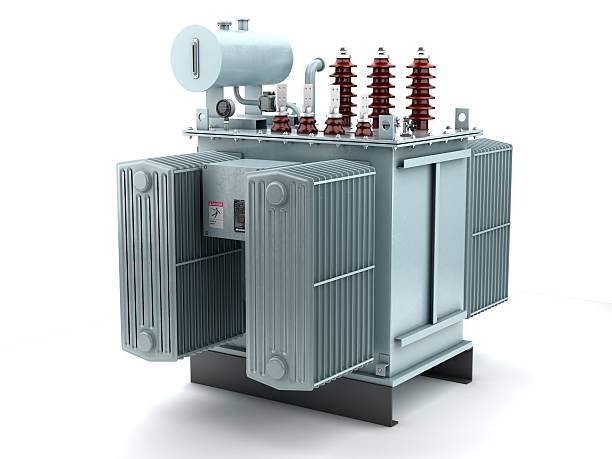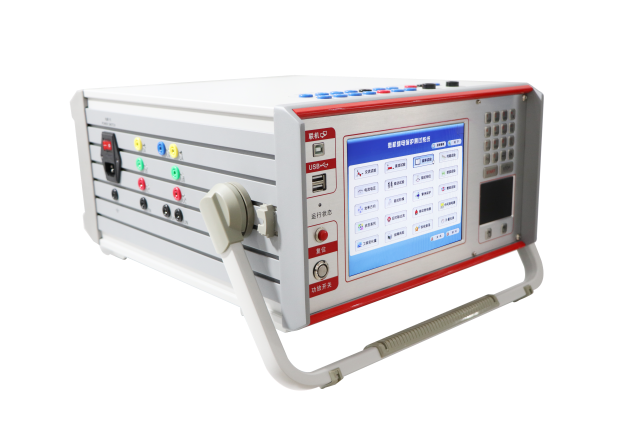Transformers are an essential component of electrical power systems, and it is crucial to ensure that they are functioning correctly before they are put into service. Transformer testing is necessary to verify that the transformer’s electrical and mechanical parameters are within specified limits and that it will operate reliably and safely under normal operating conditions.

There are two primary categories of transformer tests: tests performed before installation the transformer and tests performed during commissioning.
Transformer test done before installation
Type tests
Routine tests
Special tests
Transformer test done at the consumer’s site
Pre-commissioning tests
Periodic tests
Emergency tests

Before a transformer is put into service, several tests must be conducted to ensure that it is free from defects and will operate correctly. The following tests are typically conducted at the manufacturer’s premises:
Type Tests: Type tests are performed on a prototype unit and confirm the basic and main design criteria of the transformer. They include the following tests:
Power frequency dielectric test
Transformer turn ratio test
Winding resistance test
Measurement no-load loss and no-load current through open-circuit test
Measurement of short circuit impedance and copper losses through short-circuit test
Transformer vector group test
Insulation resistance testing
On-load tap-changer test
Temperature rise test
Vacuum test of tank and radiators
Routine Tests: Routine tests are performed on every manufactured unit to confirm its operational performance. They include the following tests:
- Transformer dielectric test
- Transformer impluse voltage test
- Transformer winding resistance test
- Transformer turn ratio test
- Transformer insulation resistance test
- Transformer capacitance & tan delta test
- Transformer load loss (short circuit )and impedence test
- Transformer vector group test
- Transformer no-load loss and no-load current test
- Transformer On-load tap-changer test
- Transformer partial discharge test
- Transformer Oil test ((including breakdown , acidity, tension, dewpoint, flashpoint, breakdown, capacitance &tan delta, dissolved gas analysis) and oil pressure to check against the leakages of joints and gaskets.
Special tests are performed on transformers as required by the customer or application. These tests include:
Noise level measurement
Measurement of zero-sequence impedance
Harmonic distortion measurement

Here we will talk about the content about transformer important test . The below transformer testing is essential to ensure their proper functioning and to identify any potential problems before they become serious issues.
Transformer Dielectric Test
Transformer dielectric test is a type of electrical withstand voltage test that is conducted on transformers to evaluate the integrity of their insulation system. This test helps to identify potential problems with the transformer insulation and is typically performed during commissioning and routine maintenance of the transformer.

During the test, a high voltage is applied across the transformer windings and insulation, and the current is measured. The test is designed to simulate the operating conditions of the transformer and to check that the insulation can withstand the expected voltage levels and any voltage surges or spikes that may occur during normal operation.
Transformer Winding Resistance Test
Transformer winding resistance test is a type of electrical test performed on transformers to measure the resistance of the transformer windings. This test helps to determine the health of the transformer windings and identify any issues such as an open circuit, short circuit or a faulty connection.
The test involves injecting a known current into one winding and measuring the voltage drop across that winding. By knowing the value of the current and the voltage drop, the resistance of the winding can be calculated using Ohm’s Law. This process is then repeated for each winding in the transformer.
The winding resistance test is important because the resistance of a transformer winding is a critical parameter that affects the overall performance of the transformer. An incorrect winding resistance value can cause the transformer to overheat, leading to damage or even failure.
The test is usually performed during commissioning and routine maintenance of transformers. The results of the test are compared to the manufacturer’s specifications to determine if the transformer is operating within its design limits. If any abnormalities are detected, further investigation is required to determine the cause and take corrective action.
Transformer Turn Ratio Test
Transformer turns ratio test is a type of electrical test used to determine the turns ratio of a transformer. The turns ratio is the ratio of the number of turns in the primary winding to the number of turns in the secondary winding of the transformer. This test is essential because the turns ratio affects the voltage and current output of the transformer.
During the turns ratio test, an AC voltage is applied to the primary winding of the transformer, and the resulting voltage is measured on the secondary winding. The turns ratio is then calculated by dividing the measured voltage on the secondary winding by the applied voltage on the primary winding.
This test can be performed on all types of transformers, including power transformers, distribution transformers, and instrument transformers. It is an essential test during commissioning, routine maintenance, and repair of transformers to ensure their proper functioning and to detect any faults that may affect their performance.
What is transformer insulation resistance test ?
Transformer insulation test is used to perform on a transformer to determine the quality and effectiveness of its insulation system. The test measures the insulation resistance between transformer winding and between the windings and the transformer’s core or ground. The purpose of the test is to detect any defects or problems in the insulation, such as moisture, contamination, or damage, which can lead to short circuits or other electrical faults.
The transformer insulation test is typically performed using a megohmmeter or insulation resistance tester. The test involves applying a high DC voltage to the transformer’s windings and measuring the resulting current flow. The measured insulation resistance value is then compared to the acceptable range for the transformer’s rating and condition.
Insulation testing is an important part of routine maintenance and commissioning of transformers, as it can detect potential problems before they cause equipment failure or damage. It is also used as a diagnostic tool to troubleshoot problems with transformers that are already in service.
What is transformer capacitance and tan delta test ?
Transformer capacitance and tan delta test is a type of electrical test conducted on transformers to assess their insulation condition. This test is also known as power factor test or dissipation factor test.
The test measures the capacitance of the transformer winding insulation and the power factor, which is the ratio of the resistive component to the total current. The tan delta is the tangent of the phase angle between the applied voltage and the current flowing through the insulation.
The test is conducted by applying a test voltage across the winding insulation of the transformer and measuring the current that flows through the insulation. The capacitance of the insulation is calculated by dividing the test voltage by the current. The power factor or tan delta is calculated by measuring the phase angle between the applied voltage and the current.
This test is useful in detecting insulation deterioration due to moisture or aging. A high power factor or tan delta value indicates a higher degree of insulation deterioration. The test is also helpful in determining the insulation quality of the transformer at the time of commissioning and during routine maintenance.
What is transformer load loss and impedance testing ?
Load loss and impedance testing are electrical tests performed on a transformer to measure its efficiency and ability to handle current under load. Load loss refers to the power that is lost in a transformer when it is under load, while impedance refers to the resistance of the transformer to the flow of current.
Load loss testing involves measuring the power lost in the transformer when it is under load. This is done by applying a known load to the transformer and measuring the input and output power. The difference between the input and output power is the load loss.
Impedance testing involves measuring the impedance of the transformer. Impedance is the opposition of a circuit to the flow of alternating current. In the case of a transformer, impedance refers to the resistance of the transformer to the flow of current. Impedance testing is done by applying a known voltage to the transformer and measuring the current that flows through it. The ratio of the voltage to the current is the impedance.
Both load loss and impedance testing are important for determining the efficiency and performance of a transformer under load conditions. These tests are typically performed during the commissioning of a transformer, and also during periodic maintenance checks to ensure that the transformer is operating as expected.
What is transformer temperature rise test ?
Transformer temperature rise test is an important type of test conducted to determine the temperature rise of a transformer when it is fully loaded. The purpose of this test is to ensure that the transformer is capable of handling its rated load without overheating.
During the test, the transformer is loaded with its full rated load and the temperature of the oil and windings is measured at regular intervals using temperature sensors. The test is conducted for a period of several hours until a steady-state temperature is reached.
The temperature rise of the transformer is then calculated by subtracting the ambient temperature from the highest measured temperature during the test. This temperature rise should not exceed the specified limits set by the manufacturer.
The temperature rise test is important because excessive temperature rise can result in insulation failure, reduced transformer life, and possible catastrophic failure. Therefore, it is essential that this test is performed on every transformer to ensure safe and reliable operation.
Conclusion
Transformer testing is an essential process that ensures the proper functioning of transformers in power systems. Transformers play a critical role in the transmission and distribution of electrical power, making their reliable operation crucial to the overall stability and safety of the power grid.
What electrical transformers tests to conduct before installation ?
There are transformer testing conducted before installation as follows:
- Transformer dielectric test
- Transformer winding resistance test
- Transformer turn ratio test
- Transformer insulation resistance test
- Transformer capacitance & tan delta test
- Transformer load loss (short circuit )and impedence test
- Transformer temperature rise test
Testing transformers before installation and commissioning is necessary to identify any defects, damage or malfunctions that may have occurred during transportation, handling, or storage. It is also important to verify that the transformer meets the design specifications and standards set by regulatory bodies and industry standards.
Commissioning tests are conducted to ensure that the transformer is installed correctly and to its full capacity. These tests include measuring transformer turns ratio, winding resistance, insulation resistance, dielectric strength, and more. The results of these tests help to establish a baseline for future diagnostic testing, and also ensure that the transformer is operating correctly and safely.
KV Hipot Is Your One-Stop Solution for Your Transformer Testing .
KV Hipot Power Equipment Co.,ltd is a leading manufacturer of transformer test equipment. We are committed to bringing you the best transformer test solution quickly and within budget.
Our extensive catalog of professional battery test equipment can be tailor-made to suit your transformer testing needs. Get the help of our professional tech team and expert engineers to customize your products and systems.





